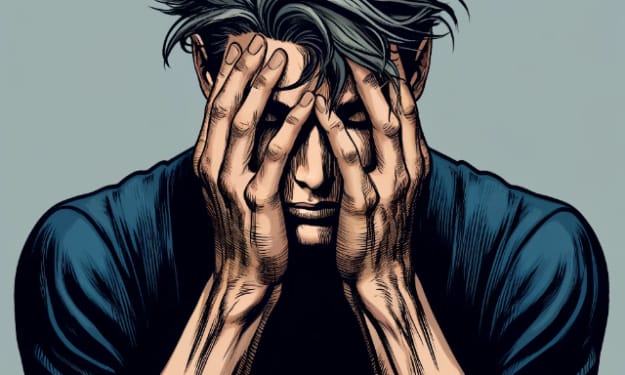Let Him Forget Thee, O Jerusalem!
A Six-Day Trip Through Jerusalem

The First Day
Their six-day trip to Jerusalem during the savage spring of 2014 started splendidly. They had decided to drive and walk throughout the city, arriving to the Caesar Premier hotel early in the morning of the first day. “Render unto Caesar the things that are Caesar’s” seemed to suit their home away from home.
The Yad Vashem (Hand and-Name)–The World Holocaust Remembrance Center, followed by the Herzl Museum, seized the first day like a Jovian storm. They had all descended to Yad Vashem separately before.
His stunning wife on a whim in the 70s; that fetid decade, save cinema (A Clockwork Orange, One Flew Over the Cuckoo’s Nest, Annie Hall, Close Encounters of the Third Kind, Saturday Night Fever, The Deer Hunter, Alien, and many more), save music (Pink Floyd, Led Zeppelin, Wings, Electric Light Orchestra, Supertramp, Eagles, Bee Gees, and many more), and save literature (Philip Roth, Milan Kundera, E. L. Doctorow, Philip K. Dick, Douglas Adams, John Irving, Isaac Asimov, and too many more).
Yad Vashem wanted him in the 80s on a different type of whim; that ordinary decade, save some cinema (Blade Runner, Full Metal Jacket, The Princess Bride, and more than a few more), save some music (U2, Madonna, Jon and Vangelis, and a few more), and save some literature (Ken Grimwood, Margaret Atwood, Umberto Eco, and numerous more).
Yad Vashem inspired Im’ut (literally, if you), their first child, in 2009 on a school outing following her 12th birthday; affective Aviv (literally, spring), their second child, in 2010 on a school outing following his 12th birthday; and disarming Dvora (literally, bee), their third child, in 2011 on a school outing following her 12th birthday.
Yad Vashem felt definitely different as a family. They had cried helplessly during their separate inclinations, but as a family, they wailed, looking at each other, unable to stop the tears, clinging to one another like the fingers of a hand (some paws too). It had been nevertheless unbearable the first time, and not one of them could even have imagined a second helping of such absolute evidence of heartlessness. Imah shemam vezihram (May their name and their memory be obliterated), omnipresent in many minds when thinking of the Nazis or being reminded of them here and there; that curse would negate “remember and never forget” and the ruthlessness perpetrated by these so-called representatives of humanity. Yet, the mind, the Jewish mind particularly, could and can accommodate such a discrepancy.
The Herzl Museum turned their sorrow into fulfilled hopefulness, with Herzl’s “If you will it, it is no dream” rumbling in their crania like an awakening volcano, each of them comprehending at a different degree that between Herzl and Israel, an idea and a reality, a wish and its accomplishment, a plea and a phenomenon, towered the Holocaust, dwarfing everything that transpired before and after its enduring dénouement.
The Second Day
Visiting the Hebrew university on the second day seemed more subdued, both the visit and the day. “I imagine Im’ut studying astrophysics or any other astounding scientific endeavour,” he stated when they stopped for lunch during the tour of the university on foot. “Can I?” Im’ut asked, her coruscating eyes exacting some of the stars in the sky. “With your commitment, we’ll do everything to make it happen,” his wife said, kissed by him as soon as she rested her lips. “I imagine Aviv learning literature; Hebrew, French, English, Spanish, and any other creative and reflective field,” he declared after the kiss. “It would be a dream come true to spend my life reading and writing,” Aviv replied, his head inclined a little to the left, perhaps proclaiming his upcoming political penchant. “If you will it, it is no dream,” his wife said, receiving two more kisses from him. “I imagine Dvora busying like a bee for the advancement of peace,” he avowed between the kisses. “I would be honoured to help our people, and theirs, reach a peaceful coexistence,” Dvora said, beaming both beauty and beguilement, which would be advantageous during any discussion, especially one involving a punishing peace. “Peace won’t have a chance against you,” his wife said, embraced instantly by him until someone from the tour, a French visitor in all likelihood, asserted out loud that L’amour ne peut longtemps se cacher ou se feindre (Love cannot hide or pretend for long). Sadly, kind words alone are rarely harbingers of peace.
The Third Day
The Israel Museum netted the third day, with its encyclopedic collections spanning prehistory to the present day, highlighting broad holdings of Biblical and holy land archaeology, and crushing any misgivings about Hebraic, Israelite, Jewish, and Israeli belongingness. He looked at the primeval artifacts, one contradiction tailed by another, a complete paradox of religious faiths, and then looked at his wife who smiled and lowered her eyes. He kissed her passionately, whispering in her right ear, “Raise your eyes because it’s not belief that makes one content, but the truth, and your eyes are too beautiful to be lowered.”
Im’ut, Aviv, and Dvora loved their parents, especially when they kissed and hugged, feeling that the world was perfect at that moment, that everything was going to be alright, after all.
The Fourth Day
The fourth day showcased the Biblical Zoo, also called the Tisch Family Zoological Gardens, where the plants stole the show, providing respite from Jerusalem’s intensity and heat, especially the date palm, offering both shelter and nourishment, though the latter was surely well out of reach. The animals were confined like in any other zoo, but at least no one was planning to sacrifice or eat any of them. Many had been mentioned in the Bible, as if they risked extinction, but like the Jews, they only became endangered species. Each animal had surely something to impart, but King Solomon had not been around for such a long time that they did not even try. It was a sad situation to and fro, toing and froing, only the trees contributing some semblance of liberty, rising above the misery, a few of them conceivably recalling olden days when they were part of a forest roaming with sounds of freedom.
He kissed his wife under a number of trees and in front of several animals, a couple of chimpanzees watching them with interest, perhaps pondering whether he was the alpha or a lucky ape. Im’ut, Aviv, and Dvora contemplated everything perceptively; Im’ut thanking the stars for such remarkable creatures; Aviv thinking of Animalia, an animal-illustrated, alliterative, alphabet children’s book that he had received from his father; and Dvora wondering whether freedom and peace would ever envelop all the creatures of the world.
The Fifth Day
Remembering the compassion presented to them by the zoo’s plant life, the fifth day featured walking and hiking throughout stretches of the Peace Forest, which was rooted on a site that has been ascribed the Biblical Azal river mentioned in the book of Zechariah. Several Second Temple period, Hebrew-inscribed tombs titivated the forest, along with the remains of an aqueduct that had supplied water to the Second Temple and the rest of Jerusalem. Tree touching tree, longing for their twigs to grow farther to foster their green amalgamation, they stood steadfast together, with “rage against the dying of the light.” Dvora hugged a tree and soon enough they were all hugging trees, young trees and old trees, small trees and large trees, short trees and tall trees, bright trees and dark trees, jaunty trees and crestfallen trees, embracing them like family members, like lovers in the fall.
A trek in a forest is like a walk in the park, except that there are no benches in a forest and no lumberjacks in a park. The clearing of a forest is a genocide, a restricted holocaust, a crime against plantae, planticide.
The Sixth Day
The sixth day starred the Jewish Quarter and the Western Wall. Following the 1948 war, a Jordanian commander was reported to have told his higher-ups that for the first time in history not a single Jew lingered in the Jewish Quarter, not a single building stood intact, which would make the return of the Jews impossible. He seems to have forgotten, or more probably not to have known the everlasting psalm “If I forget thee, Jerusalem, let my right hand be forgotten!” along with the over 500-year-old phrase “Next Year in Jerusalem!” This household strolled through the Hebraic quarter, the Israelite area, the Jewish region, the Israeli district, remembering most of what they had seen in the past few days, holding the hands of bygone individuals, tightening their fists around lost molecules of sorrow, letting their tears evaporate in the most Jewish air. They were purposely approaching the Western Wall, the Wailing Wall, the sobbing barrier between two Abrahamic religions in proximity of a third one, the epitome of the cruel Father, the conceived Son, and the unholy spirit. It was blisteringly hot, so they stopped at a quaint café for iced teas (his wife and him) and iced fruit juices (Im’ut, Aviv, and Dvora). He and Aviv went to the counter to place the order, and Im’ut, Dvora, and his wife sat at a table nearby.
An overdressed man in his late teens entered the air-conditioned premises a moment later and blew himself up. The problem with such descriptions of suicide, up-to-date deaths, is at least twofold: the terrorist blows everyone and everything around, and the terrorist is committing everything except suicide. It was expressly a coldblooded massacre that claimed, mutilated and mangled, slashed and gashed, teared and ripped, six individuals, this time around, five Jews and one Christian: his wife, Im’ut, Aviv, Dvora, a girl from Montreal, and a man from Boston. The murderer does not count, is not counted, and will never count. His family’s home was eventually demolished by Israel, but they received money from several sponsors and purchased a new one. Their lives continued arabesque and unabashed, with celebrations of their sacrificial son, reminiscing time after time about the godly good old days when they had dressed him like a butcher that looked like a soldier, or when Jews were simply preposterous pigs.
The bomb included nails and screws, which bolted in all directions, hurtling into flesh, bone, glass, wood, metal, gyprock, and concrete. It is, however, the flesh, and it is, however, the bone, that hurt the most, the flesh fairly more than the bone. A nail he named Y burst into Im’ut’s brain and snuffed her life within seconds. It sped through the superior frontal gyrus, made its way into the corpus callosum, prolonged to the septum pellucidum, passed through the fornix, persisted into the thalamus, skidded by the lamina quadrigemina, entered the cerebellum, and exited via the cerebellar hemisphere, leaving destruction and death in its track.
Seventeen-year-old Im’ut was gone, forever, from one of the terrorist’s nails. The bomb alone would not have killed her. “Nail all terrorists! To the walls of their houses! Inside, not outside! Next to their childhood pictures! Six inches from the floor! Do not crucify them! It is too moderate! Nail them with 99 nails; 99 red balloons of blood, all in their heads!” he pictured in a perfect world.
A screw he named M ruptured Aviv’s heart irreparably, liquidating him within a minute. It raced across the typical heart structures (pericardium, atria, ventricles), turning spring into an everlasting dead winter. Shrapnel also hit his left shoulder, but luckily did not cause permanent harm. “Lucifer! You do not exist either!” he thought mockingly.
Sixteen-year-old Aviv was no more, evermore, from one of the terrorist’s screws. “Screw all terrorists! To the roofs of their houses! 12 screws per tile! A screw for each tribe of Israel. Next to the television antenna! To scramble the reception of their hate-filled channels!”
Another screw, this one he named I, slammed Dvora above the heart, puncturing her left lung, but neglecting to kill her. It is shrapnel that smothered her to death, amputating her sting, purging another possibility of peace.
Fifteen-year-old Dvora tumbled hastily into oblivion, partly from one of the terrorist’s rivets. “Rivet all terrorists! To the doors of their houses! Inside or outside, randomly! 15 rivets per body part, placing any door ornament on them! Knocking on their heads before entering or exiting the house!” he also pictured in that perfect world.
“Leah, my Leah! Leah, my love! Leah, my wife! Leah, my life! Leah, the world! Leah, the universe! Why have you forsaken me?” he cried out. “One of the nails, the nastiest of nails, the annihilator nail, the Nephthysian nail, the Nergalian nail, the Nenian nail, Azrael’s nail, the terrorist’s nail, has taken you away from me. Not peace! Piece! A piece of every terrorist for you! A piece of me for you! Every piece of me for you! Leahhhhhhhhhhhhhh!” he whispered.
That fanatical nail pierced her body, holed her mind, deferred her death, for the sake of suffering, for the purpose of pain, for terrorist pleasure, for cruel immodesty. “Nail all terrorists! To the pillars of their cities! Outside only! Six inches from the top, facing the sky! Nail them with 36 nails, evenly distributed to form a lump of the moon! Leah was there, but I am here; I am everywhere!” he shouted silently.
She was lying on the hospital bed with a pale smile on her soft face, which he wanted to embrace interminably, as if there was no tomorrow. He held her right hand — the other hand had been badly hurt by shrapnel — kissing it frequently and repeatedly, more than all the mezuzahs in Israel. He rarely cried in front of her, trying to remain positive as to her chances of surviving, adding his optimism to her unbending hopefulness. She asked for cherries one morning, eating three of them, perhaps one for every child that had been lost, before telling him that she was going to die soon. “Don’t say that!” he implored. She had voiced her worries about him to one of the physicians, stating that she was fearful for him. She had signed a do-not-resuscitate directive, which enabled the treating doctor to halt a nurse’s attempt to revive her when her heart stopped a few hours later.
He was motionless. His mind was frozen. His eyes were glued on her. She had a faint smile on her forgiving face, imaginably content by the possibility, however remote, of seeing Im’ut, Aviv, and Dvora again. He was dumbstruck when the doctor recorded her time of death. He was unable to even fathom the notion that she could be gone. “The future of our children had been taken away from them and from us, and now, your future had been taken away from you and from me,” he painfully surmised. He tried to revive her, in vain, blowing into her mouth and pushing upon her chest. He kissed her. He talked to her. He kissed her again. He cut a golden lock of her hair. He kissed her again. He paced around her bed, and back and forth in the corridor outside her room. The hospital staff let him be. One of the nurses embraced him. He threw away the remaining cherries. He never ate cherries again. He kissed her again.
Let Him Forget Thee, O Jerusalem!
He only related her passing to her family when he returned home later that evening. He made arrangements that same evening for her burial next to their children. He did not attend the funerals. He stopped praying. He never returned to a synagogue. He never celebrated any holiday. He visited their graves very irregularly. He thought of suicide regularly. When a year had passed since her death, he fasted on the anniversary of her death. It was his Day of Atonement. He asked for her forgiveness. He saw her in his dreams. He listened to her voice on his smartphone. He looked at her pictures. He watched their home movies. He hated life.
He could not stand the idea that one day he would ponder that five years had passed since Leah’s death, that ten years had elapsed since Leah’s passing. He could not accept it for a second. How could he? How could anyone even think that life could go on, that life went on? Insensitive animals humans are. Bacteria-like! Practical as nails! Intelligent as screws! Her death meant that their memories were now only his. He carried them in his entire body. They circulated through his blood. They filled his mind. They hurt his heart. They weighed on his back. They were heavier than the world. Even Atlas would not have been able to support them endlessly. Samson would have been crushed within a minute. How could he both bear and drag them? Leah’s death was his looming demise. He felt like a wandering Jew, a dying doe, a clawless cat, a death-row duck, a beat bacterium, a scrap of compost. He counted the years and months without her, often considering what could or should constitute the time limit without her, how much time would push him to shout enough is enough, how long before his suicide would be demanded?
About the Creator
Patrick M. Ohana
A medical writer who reads and writes fiction and some nonfiction, although the latter may appear at times like the former. Most of my pieces (over 2,200) are or will be available on Shakespeare's Shoes.






Comments
There are no comments for this story
Be the first to respond and start the conversation.